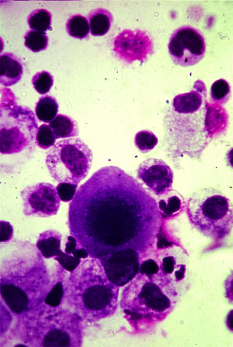Nobel for cell studies
 Three scientists have been jointly awarded a Nobel Prize for their discoveries of how cells sense and adapt to different oxygen levels.
Three scientists have been jointly awarded a Nobel Prize for their discoveries of how cells sense and adapt to different oxygen levels.
The 2019 Nobel Prize in Physiology or Medicine has gone to William G Kaelin Jr, Sir Peter J Ratcliffe and Gregg L Semenza.
The trio discovered how cells can sense and adapt to changing oxygen availability. They identified molecular machinery that regulates the activity of genes in response to varying levels of oxygen.
Animals need oxygen for the conversion of food into useful energy. The fundamental importance of oxygen has been understood for centuries, but how cells adapt to changes in levels of oxygen had long been unknown.
The seminal discoveries by the newest Nobel Laureates revealed the mechanism for one of life’s most essential adaptive processes.
They established the basis for our understanding of how oxygen levels affect cellular metabolism and physiological function. Their discoveries have also paved the way for promising new strategies to fight anaemia, cancer and many other diseases.
Oxygen sensing allows cells to adapt their metabolism to low oxygen levels: for example, in our muscles during intense exercise.
Other examples of adaptive processes controlled by oxygen sensing include the generation of new blood vessels and the production of red blood cells. Our immune system and many other physiological functions are also fine-tuned by the O2-sensing machinery.
Oxygen sensing has even been shown to be essential during foetal development for controlling normal blood vessel formation and placenta development.
Oxygen sensing is central to a large number of diseases.
For example, patients with chronic renal failure often suffer from severe anaemia due to decreased EPO expression.
EPO is produced by cells in the kidney and is essential for controlling the formation of red blood cells. Additionally, the oxygen-regulated machinery has an important role in cancer.
In tumours, the oxygen-regulated machinery is utilized to stimulate blood vessel formation and reshape metabolism for effective proliferation of cancer cells.
Intense ongoing efforts in academic laboratories and pharmaceutical companies are now focused on developing drugs that can interfere with different disease states by either activating, or blocking, the oxygen-sensing machinery.








 Print
Print